
What used to be a painful experience is now a thing of the past. I’m talking about Linux gaming. Thanks to a growing ecosystem of open source tools and community-driven innovation, Linux is no longer just for power users; it's a reliable platform for both mainstream users and gamers alike.
Even more so if one is into single-player gaming. With tools like Wine, Proton, and Lutris, running Windows games on Linux is easier than ever, and more developers now offer native Linux support right out of the box.
I am not counting those pesky multiplayer games with kernel-level anti-cheat because the developers of such games are too stubborn to support Linux.
A few weeks ago, Tsunoa Games, an indie developer out of Spain, was kind enough to send over a key for Katana Dragon, their latest game that recently added native Linux and Steam Deck support.
What Makes Katana Dragon Stand Out?
If you haven’t heard of this one, Katana Dragon is a beautiful voxel-style ninja action RPG that has two protagonists, Shin and Nobi, who are twin ninja siblings on a quest to end a curse that threatens the land of Sogen — a place where ancient temples, hidden dungeons, and strange creatures dwell.
I went with Nobi for my playthrough on a Bazzite system, and after completing the tutorial, the Sensei gave them their first mission as real ninjas: To deliver a gift to the Heshu family, who are the guardians of the Haen Forest.
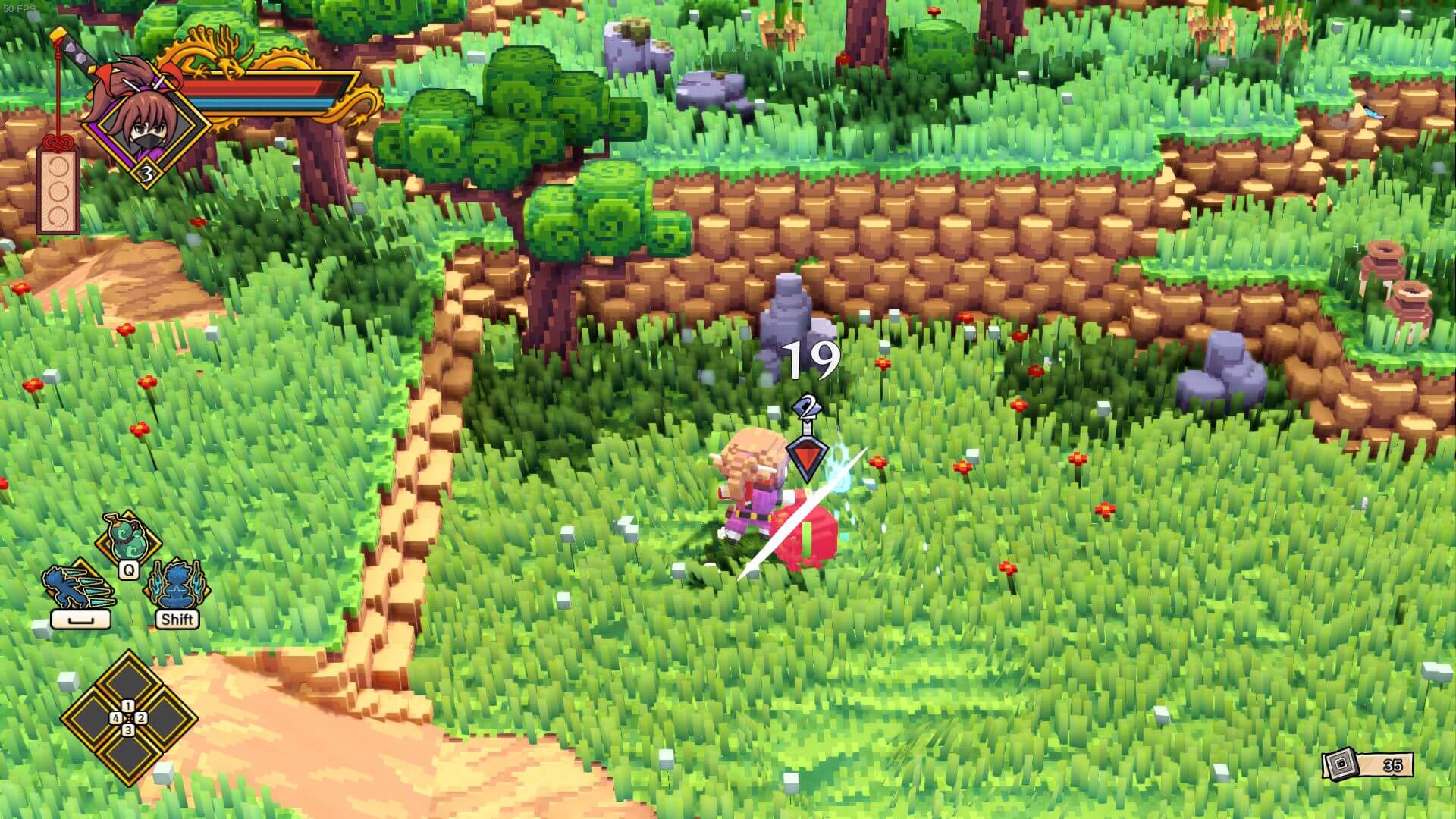
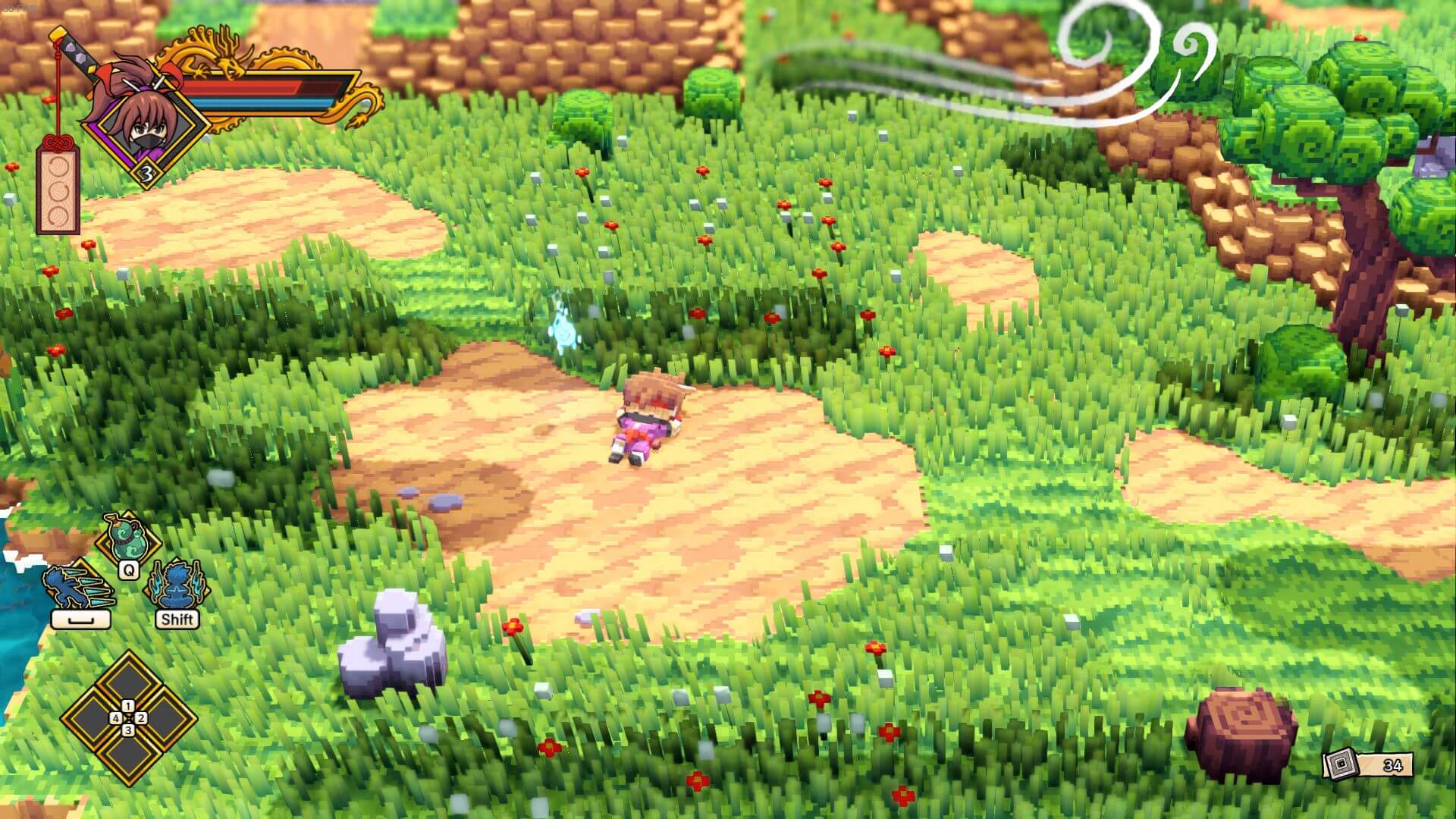
Along the way, I ran into a bunch of enemies eager to take me out, but thanks to the dash ability and my trusty katana, I was able to make quick work of those rascals. Moreover, if I left the character idle for a while, it would eventually just fall asleep on the ground. This is a small thing, but it adds a lot of personality to the game, if you ask me.
As I progressed through the game, I found out that the Heshu family had turned into ghosts, and even Shin and Nobi’s Sensei wasn’t spared. To fix this, Nobi and Sensei set off on a journey into the enchanted Haen Forest to uncover what went wrong.
Here, the game introduces the Shadow Clone ability, which adds a fresh layer to solving those tricky pressure plate puzzles. This reminded me of Naruto, who uses clones to trick enemies and make battles easier. It’s a clever mechanic that adds both fun and challenge to the gameplay.
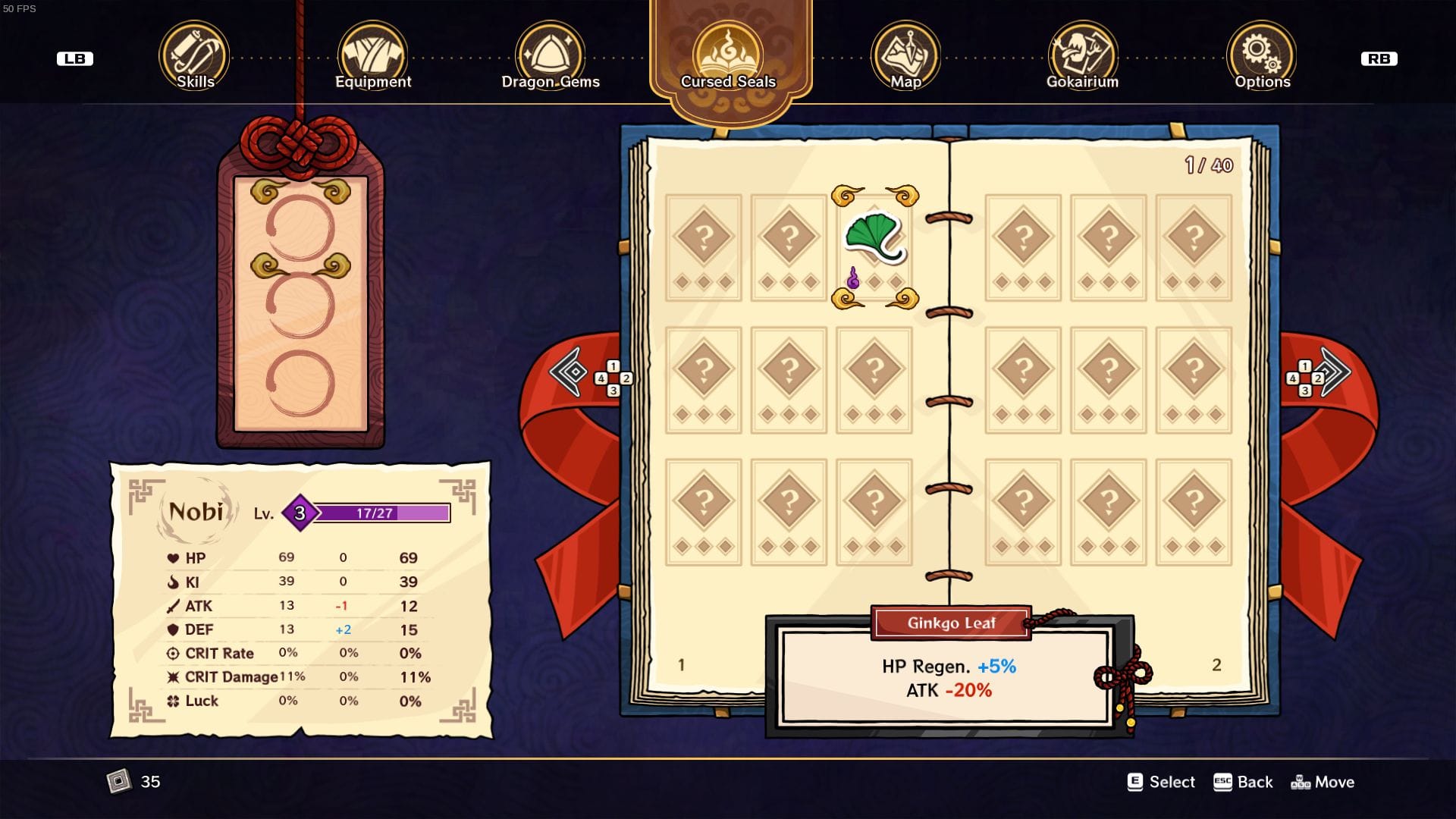
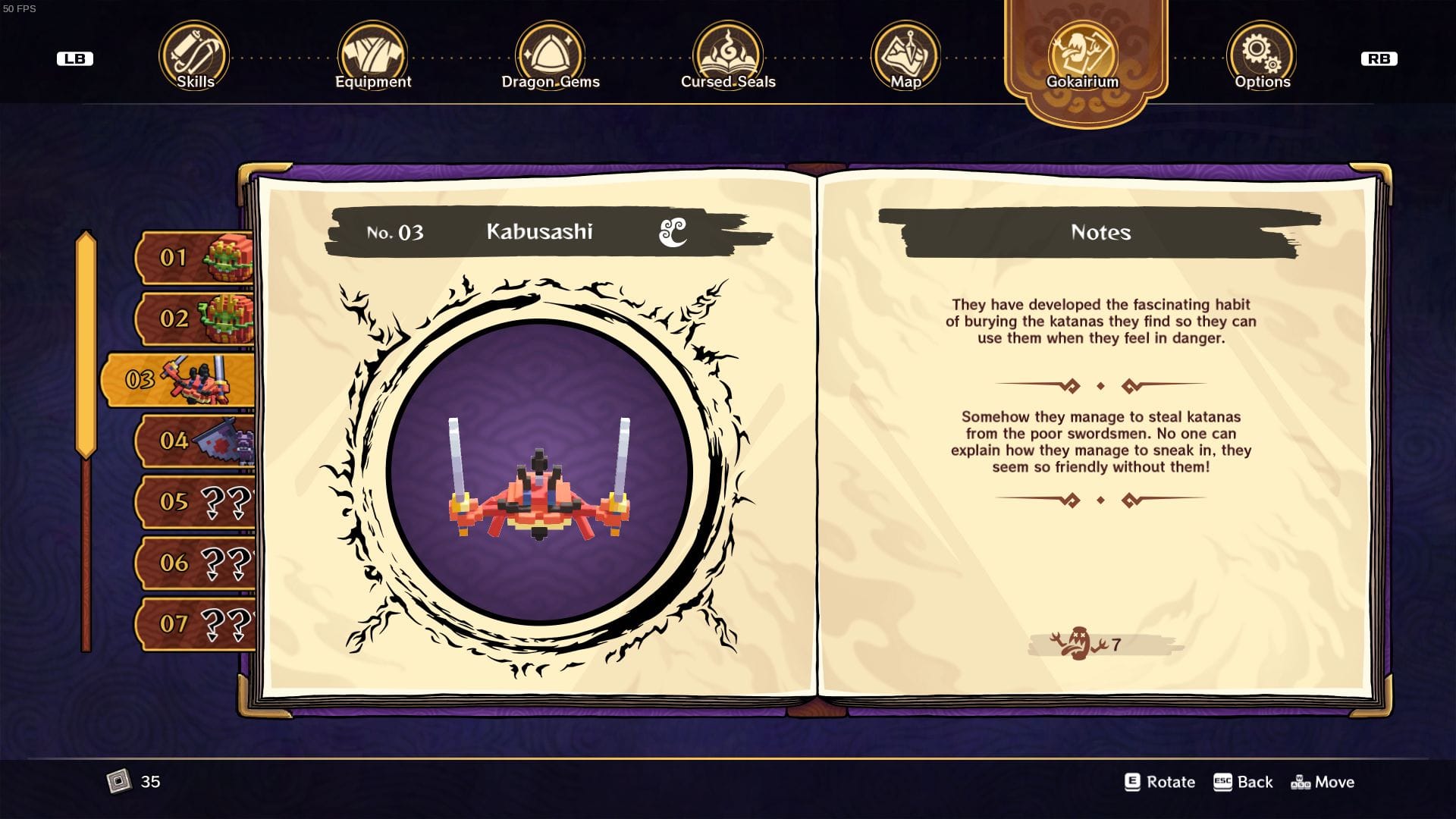
The Cursed Seals and Gokairium pages.
Finally, let’s talk about the skills, equipment, and some other gameplay elements of Katana Dragon. As you progress, you unlock various skills that let you customize your combat style. There are dragon gems you can collect and add to your gear to boost your stats, and cursed seals that give you powerful buffs but come with risks.
The map system is straightforward and really helpful for navigating the world. There’s also something called the "Gokairium," which acts as an in-game wiki for learning about the different enemy types.
I did run into a few issues, like random stuttering and the settings menu showing gamepad controls even when the keyboard option was selected, but that’s expected from an early access game.
🎮 How to Play?
While still early in development, the developers of Katana Dragon have more content on the way, including new dungeons, ninja skills, over 20 new enemy types, as well as new skins, cursed seals, and accessories.
As this is a native Linux game, there's no need to mess with Proton; everything works out of the box on popular distros like Fedora, Bazzite, or Ubuntu.
Katana Dragon is available for $9.99 on Steam if you're looking to give it a try.
Suggested Read 📖
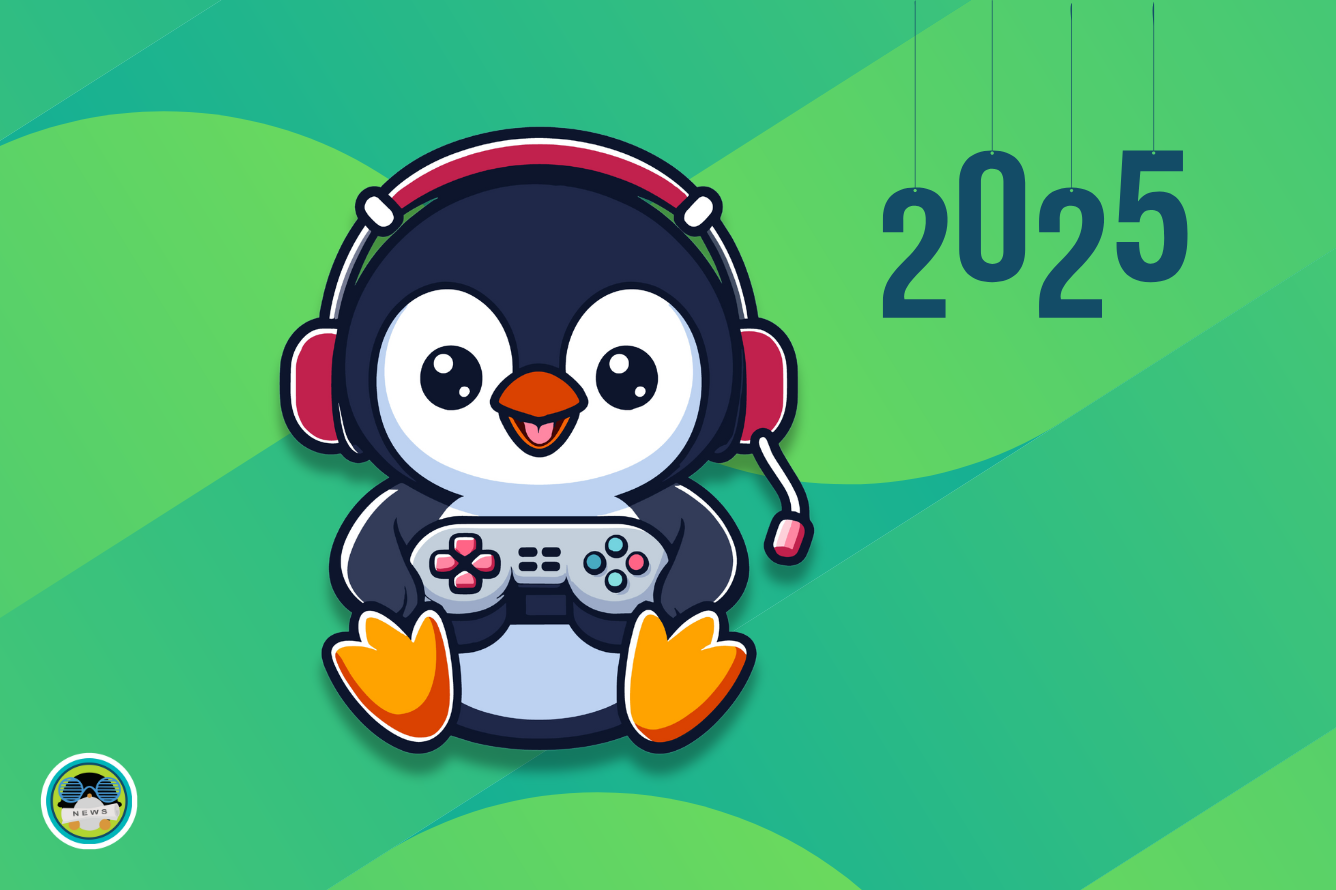
- Even the biggest players in the Linux world don't care about desktop Linux users. We do.
- We don't put informational content behind paywall. Your support keeps it open for everyone. Think of it like 'pay it forward'.
- Don't like ads? With the Plus membership, you get an ad-free reading experience.
- When millions of AI-generated content is being published daily, you read and learn from real human Linux users.
- It costs just $2 a month, less than the cost of your favorite burger.
Become a Plus Member today and join over 300 people in supporting our work.











